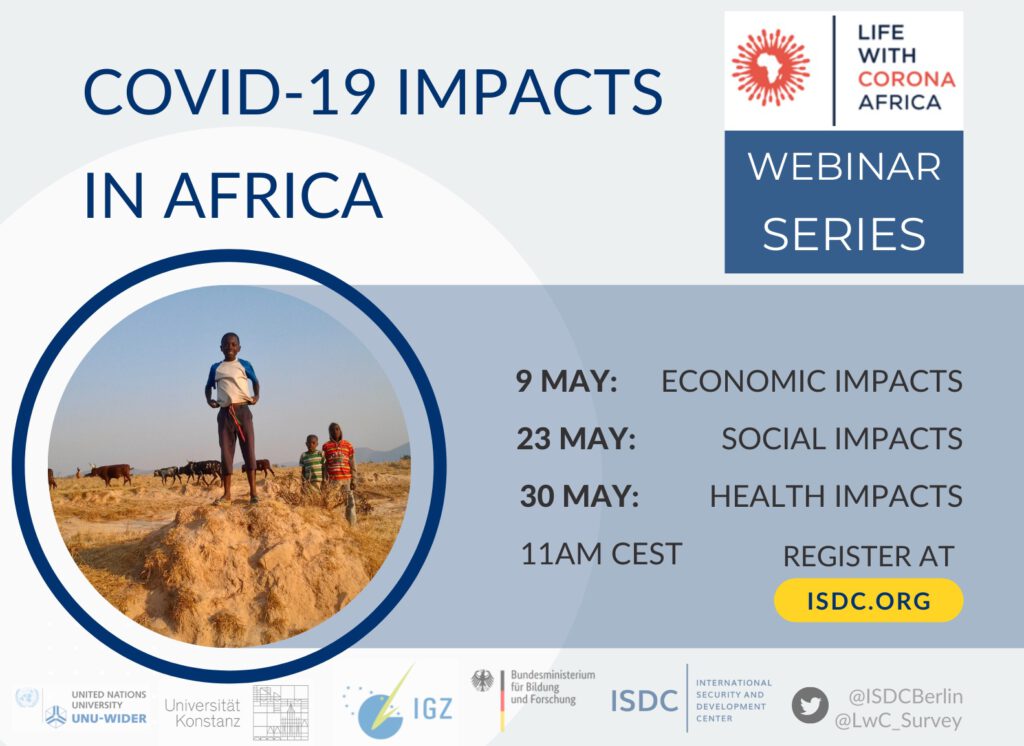Join us at the Life with Corona Africa Webinar series where we will share and discuss new evidence and policy guidelines on how people in Africa respond to and cope with the COVID-19 pandemic. Over three sessions throughout May 2022, researchers from the Life with Corona-Africa project will present insights that emerge from their micro-level analyses of economic, social, and health impacts of the COVID-19 pandemic in Africa.

This form is now closed for new entries. Thank you for your interest!
The overall objective of LwC-Africa is to generate new evidence and policy guidelines on how African citizens respond to and cope with the profound global shock to their lives and livelihoods caused by Covid-19. The LwC-Africa project will build on the unique Life with Corona online survey to advance understanding of how the pandemic is affecting health, food, work, gender and social cohesion outcomes in order to better prepare communities and governments to respond to the challenges ahead as the pandemic spreads across the continent. The LwC-Africa project will collect four quarterly repeated cross-sectional phone-based surveys over 12 months. The final choice of African case study countries will be made during the inception phase of the project.
The specific objectives of the project are:
1. To advance our conceptual understanding of how a global pandemic impacts on Africa (WP1);
2. To design appropriate research methods to generate rigorous evidence while a pandemic unfolds across Africa (WP2);
3. To generate quarterly phone survey data on how people in five Sub-Saharan African countries are coping with the pandemic over 12 months (WP3);
4. To produce rigorous analysis on the impacts of the pandemic (WP4); and
5. To support policy actions to address and mitigate the effects of the Covid-19 pandemic and the measures to contain it (WP5).
The project will be implemented by a leading team of social and natural science researchers at two German research institutes and their international partners.The findings of this project will advance our understanding of the special challenges of coping with Corona in low income and fragile settings and will contribute to better policies and aid programmes to support the most vulnerable population groups in the vulnerable countries in Africa.
